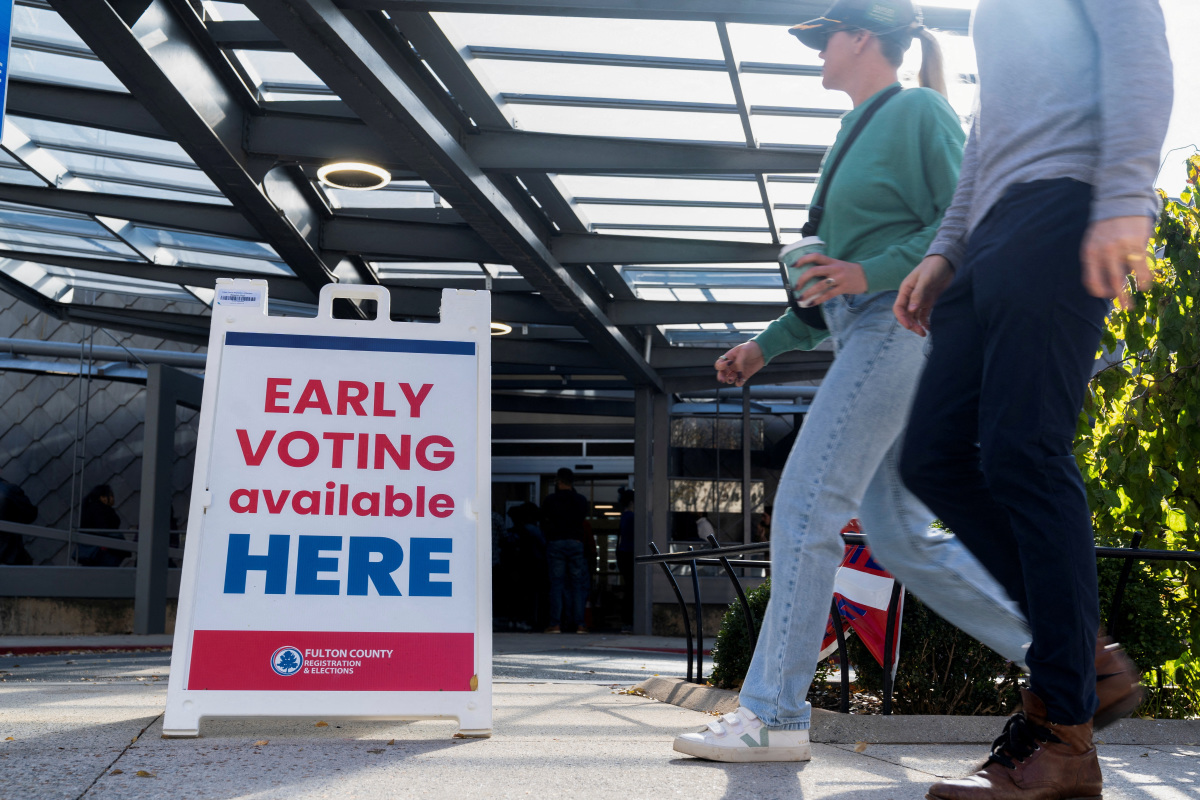The midterm elections are over. But not the struggle for normalcy in American Politics.
Andrew Leven, a former U.S. Department of Justice prosecutor for 23 years and a lifelong Republican, who recently endorsed and volunteered for a Democratic member of Congress, provides bold answers to complex questions.
International Business Times: In the United States, many media commentators – and Democratic operatives – are heralding the recent midterm elections in the United States as a Democratic Party victory—Are they right?
Andrew Leven: Not really. On the one hand, the Democrats dodged a bullet by not losing more than they did. On the other, their gross underperformance can just as easily be characterized as a defeat. For American Democracy and the world order, whose stability is inextricably intertwined with the global economy.
Here is why.
America has two political parties – Democrats and Republicans. Right now, the Democratic Party is the only one functioning. At least as compared to the Republicans, who have collapsed into an afactual praetorian guard for Donald Trump.
In a profoundly fractured electorate, Trump’s stalwart voter base gave him an outsized voice in selecting many Republican Party candidates, resulting in the dreariest slate of Republicans in living memory. Faced with such opponents, the Democrats should have swept the table. Instead, they barely held the Senate and lost the House of Representatives. Far too many of Trump’s worst acolytes won. And the percentage of American voters identifying as Republicans has increased – from 24% right after Biden’s 2020 election to 33% now – while the Democratic share has decreased from 30% to 29%.
Why have the Democrats so egregiously underachieved with voters?
It likely isn’t about policy. While excelling at taglines (“Build the Wall”), during his four years in office, Trump demonstrated – many times – his unwillingness to do the hard work of formulating actual policy. Yet in 2020, 74,000,000 voters supported his re-election. By contrast, Biden, who played a crucial role in passing popular infrastructure and climate change legislation, has watched his popularity among voters sink from over 54 to just under 42 percent.
In addition, many government policies are also mind-numbingly complex. For example, the Internal Revenue Code (the U.S. tax law) is some 2,600 pages long, supplemented by thousands of pages of regulatory interpretations, case law, and agency rulings.
Then there is the American voter, whose government rests on a balance of power shared by three co-equal branches; the Executive (the President, who enforces the law). Legislative (Congress, which passes laws), and Judiciary (which interprets the laws). In a 2020 survey, a bare majority of Americans (51%) could name all three branches. Twenty-three percent could not name any branch. More than half did not know that the Constitution guarantees freedom of religion and the press.
What else could account for the jaggedness of the American electorate?
Joe Biden was elected on his third try – having previously run, and lost twice. What changed? In 2020 voting for Biden became a vote for normalcy. In a nation exhausted by chaos.
Have Biden, and the Democratic Party, writ large, delivered? In a word, “no.”
Erin Aubrey Kaplan, who writes for the New York and Los Angeles Times, has also authored critically acclaimed works and received multiple book and journalism awards. She understands America as a place where – “a culture” of “radicalized power, an assumed authority of white people (chiefly men) to set and enforce the social and moral order as they see fit” – has gone “mainstream.” Moreover, Kaplan explains, “[w]hite supremacy is meant for all white people,” not just Trumpists. It is a self-sustaining “ecosystem that touches everyone,” including moderate Democrats.
Kaplan is no outlier. Her views – and by extension others in the Democratic Party’s progressive wing –have rippled through the architecture of this country. Most Americans, however, don’t hold those views.
The progressive wing of the Democratic Party is certainly entitled to their views. Where, though, does that leave moderates of both parties and the several million Republicans deeply troubled by their own party’s disintegration?
We all belong to groups but live individual lives. This simple reality gives rise to a notion of equality that focuses less on the admittedly real societal problems of income inequality and racism and more on the belief that we should be defined by what we do as individuals. Not what other people who lived during other times have done – which is how progressives evaluate America. Until the Democratic Party walks away from hard-left progressives, we will remain politically chaotic.







